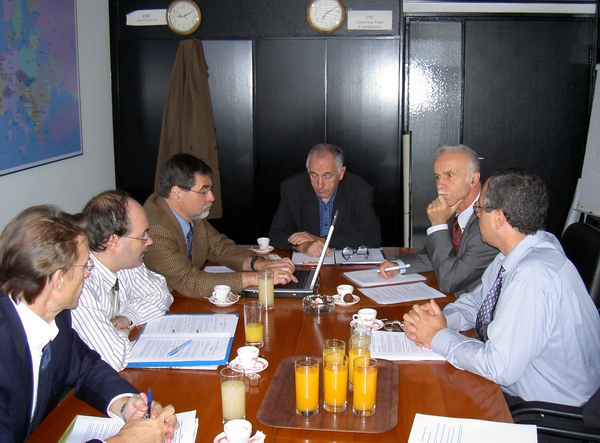In-depth Review of Energy Efficiency Policies and Programmes of Croatia

Versión en español no disponible.
The Energy Charter Secretariat has published the “In-depth Review of Energy Efficiency Policies and Programmes of Croatia”, which was realised with the assistance of the director of Energy-Strategies, Wolfgang F. Lutz, in September 2004. The report provides detailed insights in the efforts of the Croatian government and other actors to promote energy efficiency in an environment of gradual energy sector reforms and preparation for accession to the European Union.
Croatia has been a candidate for EU membership since 2004, and as such in the process of aligning its energy policies with the acquis communautaire and the underlying EU Directives. Taking into consideration that Croatia is a relatively small country with also limited energy markets, there is a certain tension field between the objectives of market liberalisation required by the European Union and the challenges posed by a future South-East European energy market and eventually integration in the EU energy market. The competitive and strategic position of Croatian energy companies, who are in the process of privatisation, is an important aspect in this context.
From an energy efficiency point of view, it appears important that energy market reforms should create favourable conditions – or at least a level playing field – for the effective participation in the market of new actors like producers and suppliers of green energy, cogeneration and energy service companies.
Concerning end-use energy efficiency and related areas like renewable energy and cogeneration, some important steps have been initiated in Croatia, like proposed legislation on quota for renewable energy, regulated feed-in tariffs for electricity from renewables and cogeneration, as well as energy efficiency labelling and minimum energy efficiency standards for household appliances, energy efficiency requirements for buildings and state subsidies for end-use energy efficiency measures, e.g. in the building sector. Yet many of these proposals still await adoption by the legislator and implementation.
Several so-called National Energy Programmes address policy and strategy development, preparatory work on legislation, energy audits, training activities and campaigns, networking activities and pilot- and demonstration projects in the fields of cogeneration, industrial energy efficiency, energy efficiency in buildings and centralised heating systems, energy efficiency in transport and renewable energies, including small hydro power, solar energy, biomass and waste utilisation, wind and geothermal energy. Despite of their technical quality, higher funding levels – probably from the new Environmental Protection and Energy Efficiency Fund – will be required in order to achieve a more substantial impact.
The report provides detailed information and a series of recommendations to the Government of Croatia with regard to: (i) energy efficiency policies, strategies and programmes, (ii) the legal, regulatory and institutional frameworks for energy efficiency, (iii) energy market and prices, (iv) energy efficiency funding and fiscal policies, (v) specific programmes and instruments, (vi) cogeneration, district heating and renewables, (vii) data collection and monitoring, (viii) information and awareness, and (ix) energy efficiency and environmental policies.
In-depth reviews of energy efficiency policies and programmes of signatory states of the Energy Charter are carried out on a peer basis, in a process of periodic reviews established by the Energy Charter Working Group on Energy Efficiency and Related Environmental Aspects. The aim of the in-depth reviews is to assess progress made by countries in implementing their commitments under the Energy Charter Protocol on Energy Efficiency and Related Environmental Aspects (PEEREA) to formulate energy efficiency policies and strategies, to establish appropriate regulatory frameworks, and to develop specific programmes for the promotion of efficient energy use and the reduction of harmful environmental practices in the energy sector.
So far, country reports on fifteen regular reviews and twelve in-depth reviews have been published by and can be downloaded from the website of the Energy Charter Secretariat. The website also includes a series of specific reports on relevant topics like the development of an energy efficiency strategy, energy efficiency financing, fiscal policies for improving energy efficiency, the impacts of market liberalisation on energy efficiency policies and programmes and third party financing.
Report: «In-depth Review of Energy Efficiency Policies and Programmes of Croatia«.
Disclaimer: The opinions expressed in this article do not necessarily coincide with those of the Energy Charter Secretariat or of any of the organisations involved in the review process.
See also previous articles on this site regarding in-depth reviews of energy efficiency policies and programmes of signatory states of the Energy Charter.
July 2005
